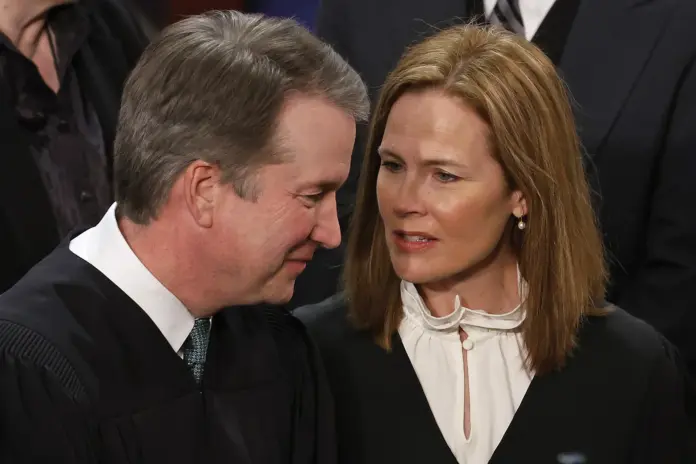On the 25th of March 2025, the recently elected President Donald Trump issued Executive Order 14248, which was titled “Preserving and Protecting the Integrity of American Elections.” The order basically addressed how elections are administered in the country. It enforces a requirement that all voters prove their citizenship through formal documentation for voting. It also puts an end to the vote-by-mail systems that count ballots postmarked by but received after Election Day. The Democratic National Committee filed an official 74-page lawsuit against the order in Washington, D.C., on Monday. This article will provide you with more information about the Kavanaugh VS. 5th Circuit election clash.
Kavanaugh VS. 5th Circuit: What Does The Lawsuit Say?
The lawsuit filed in the federal court against the executive order claims that it asserts unprecedented authority for the presidency over the election commission on a host of topics. It also explained how this effort breaches several federal laws and the explicit constitutional carve-outs for election authority granted to the states as well as the U.S. Congress. The complaint states that the President does not get to dictate the rules of the elections in the USA. It also stated that the framers of the Constitution already saw self-interested and self-aggrandizing leaders possibly seeking to corrupt the democratic government system. Therefore, they created a decentralized system of elections. This system is based upon separated powers divided among the leaders elected by and closest to the people.
Also read: Elon Musk’s Megadeal Between X and xAI: AI-Powered Social Media?
Kavanaugh VS. 5th Circuit: What Does The Lawsuit Seek?
The lawsuit filed seeks myriad injunctions against many parts of the executive order. It has also requested the judge to declare several sections of the order ultra vires and legally void. The suit seeks to have the judge declare other sections of the order violate the constitutional separation of powers and are not enforceable. It also claimed that one section violates the vertical separation of powers and the 10th Amendment.
The amendment gives to the states all the powers not delegated to the United States by the Constitution, nor prohibited by it to the States. It is the least successful constitutional challenge, but the Democrats believe they have a rare winner here because of how far-reaching the order might get into the electoral prerogatives the states have long exercised.
Republican National Committee v. Wetzel Case
The executive order issued at the end of March mainly targets the laws in thirty states that allow voters to cast valid ballots by Election Day if received within a prescribed time. The federal court has often termed this system as constitutionally and statutorily sound. However, there was one group of judges that went against it: the U.S. Court of Appeals for the 5th Circuit.
In October 2024, a panel of Trump-appointed judges ruled that a Mississippi state law allowing ballots to be received after Election Day is a violation of federal law. It explained that the deadline for selecting presidential electors and members of Congress has already been fixed in the law since 1845.
The Republicans filed several other lawsuits after this, trying to overturn such laws, but failed. The Democrats now appeal on how that one case cannot justify a move away from how many American elections now feature mass voting through the mail.
Democrats Pit The Conservative 5th Circuit Against Justice Brett Kavanaugh
The Democrats pit the conservative 5th Circuit against Trump-appointed U.S. Supreme Court Justice Brett Kavanaugh. It cited how Justice Kavanaugh explained allowing absentee ballots to ‘be mailed by election day,’ and received by some state-law deadline thereafter is a longstanding ‘policy choice’ reserved to the States. It also added that more than a century of States practicing this policy does not show any conflicts between the Election Day Statutes and such laws.
Petition Calls Out The Requirement Of Documentary Proof Of Citizenship For Voting
The petition also states that more than 21.3 million Americans do not possess the required documents to prove citizenship. When Kansas briefly implemented a similar DPOC requirement, around 12% of registrants had their applications rejected even though they were indeed US citizens. It also stated in the end that the Order extensively reflects the President’s personal grievances, conspiratorial beliefs, and election denialism. However, it still does not identify any legal authority he possesses to impose such sweeping changes upon how Americans vote. This is because the President possesses no such authority.








